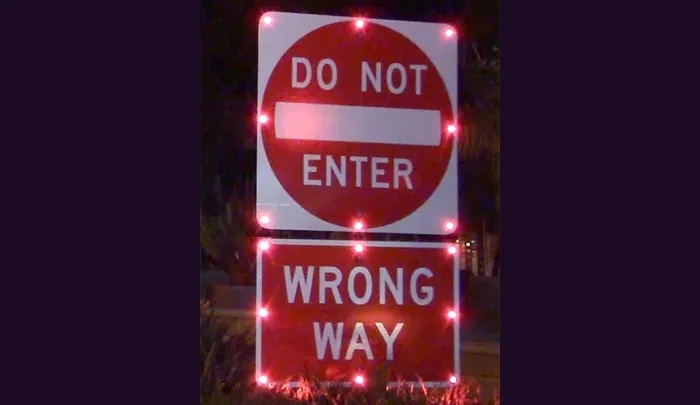Metrolink, southern California’s regional commuter rail service, has launched positive train control (PTC) in revenue service demonstration (RSD) in cooperation with Burlington Northern Santa Fe (BNSF).
PTC is one of the National Transportation Safety Board’s (NTSB) top ten most wanted transportation safety improvements. It involves a GPS-based technology capable of preventing train-to-train collisions, over-speed derailments, unauthorised incursion into work zones and train movement through switches le
February 24, 2014
Read time: 3 mins
Metrolink, southern California’s regional commuter rail service, has launched positive train control (PTC) in revenue service demonstration (RSD) in cooperation with Burlington Northern Santa Fe (BNSF).
PTC is one of the5628 National Transportation Safety Board’s (NTSB) top ten most wanted transportation safety improvements. It involves a GPS-based technology capable of preventing train-to-train collisions, over-speed derailments, unauthorised incursion into work zones and train movement through switches left in the wrong position. PTC monitors and, if necessary, controls train movement in the event of human error. PTC may also bring trains to a safe stop in the event of a natural disaster.
Metrolink now has the ability to implement PTC on specific trains and the Federal Rail Administration (FRA) has authorised its use on BNSF territory using6079 Wabtec’s interoperable electronic train management system (I-ETMS). Metrolink’s PTC service on BNSF track will be implemented on select trains on the Metrolink 91 Line. The technology is expected to be available on Metrolink later this year, while the entire service area is anticipated to be complete well before the Rail Safety Improvement Act (RSIA) mandate of December 2015.
The RSIA became law in 2008 after a contractor engineer operating a Metrolink train failed to stop at a red signal just north of the Metrolink Chatsworth Station. This action led to a head-on collision with a freight train resulting in 25 passenger deaths and more than 130 injuries.
The estimated cost for developing, installing and deploying PTC on the Metrolink system including the expansion of the communication network to support the PTC system is US$216.3 million, funded by local, state and federal sources.
Speaking at the launch, Metrolink Board Chair Pat Morris, said: “I have spent my entire life around the rail, but this is unequivocally the most instrumental piece of technology ever implemented for train safety,” said Morris, who worked his way through Stanford Law School at the ATSF Railway. “PTC will undoubtedly make Metrolink the safest commuter rail system in the country; the invaluable partnership between Metrolink and the BNSF has made today a reality.”
“Commuters across the country deserve the safest trains and routes possible, and the adoption of Positive Train Control (PTC) by Metrolink will make Los Angeles one of the first in the nation to adopt this life-saving technology,” said Rep. Adam Schiff (D-Burbank), sponsor of the Rail Collision Prevention Act, which required implementation of Positive Train Control on passenger trains. “With human errors accounting for forty percent of all rail accidents, PTC will save lives and the rest of the country needs to adopt these systems as soon as possible.”
PTC is one of the
Metrolink now has the ability to implement PTC on specific trains and the Federal Rail Administration (FRA) has authorised its use on BNSF territory using
The RSIA became law in 2008 after a contractor engineer operating a Metrolink train failed to stop at a red signal just north of the Metrolink Chatsworth Station. This action led to a head-on collision with a freight train resulting in 25 passenger deaths and more than 130 injuries.
The estimated cost for developing, installing and deploying PTC on the Metrolink system including the expansion of the communication network to support the PTC system is US$216.3 million, funded by local, state and federal sources.
Speaking at the launch, Metrolink Board Chair Pat Morris, said: “I have spent my entire life around the rail, but this is unequivocally the most instrumental piece of technology ever implemented for train safety,” said Morris, who worked his way through Stanford Law School at the ATSF Railway. “PTC will undoubtedly make Metrolink the safest commuter rail system in the country; the invaluable partnership between Metrolink and the BNSF has made today a reality.”
“Commuters across the country deserve the safest trains and routes possible, and the adoption of Positive Train Control (PTC) by Metrolink will make Los Angeles one of the first in the nation to adopt this life-saving technology,” said Rep. Adam Schiff (D-Burbank), sponsor of the Rail Collision Prevention Act, which required implementation of Positive Train Control on passenger trains. “With human errors accounting for forty percent of all rail accidents, PTC will save lives and the rest of the country needs to adopt these systems as soon as possible.”









